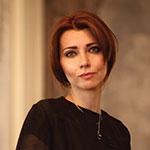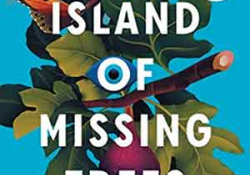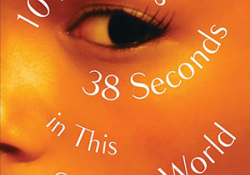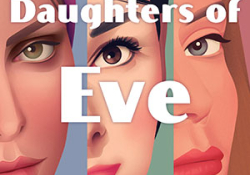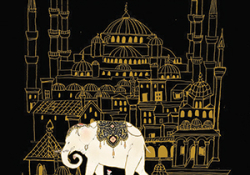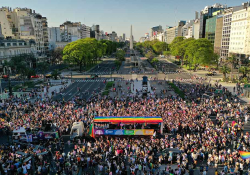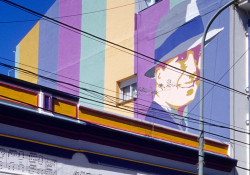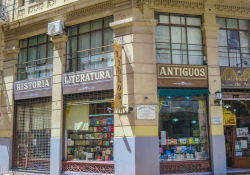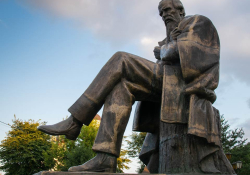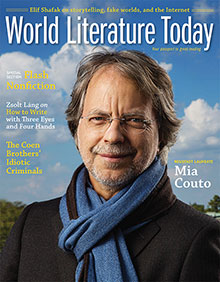Storytelling, Fake Worlds, and the Internet
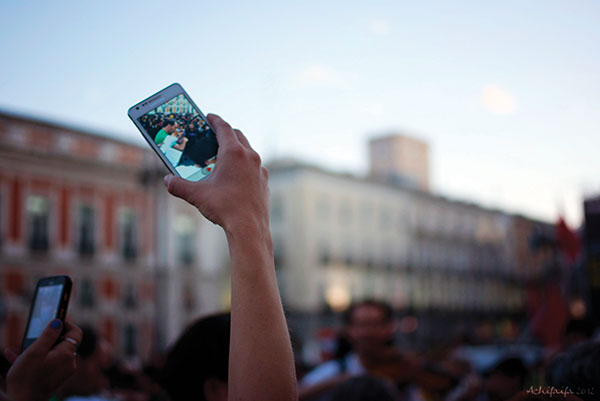
Writers from those parts of the world where democracy has for too long remained an unfulfilled dream cannot be apolitical. Over the years, as media freedom and diversity visibly shrank in countries like Turkey, social media turned into a political and ideological terrain.
Since early childhood I have believed that an “imaginary world” could be more authentic than the so-called real world. Invented fictional characters could be, and often were, more genuine than the people one came across in daily life. The Land of Storytelling is a land of compelling truths told in the form of little lies.
I started writing fiction at the age of eight, not because I wanted to become a novelist (I didn’t even know there was such a possibility, such a way of living) but because I was a lonely and hopelessly introverted child, on my own most of the time, observing things and people from an unbridgeable distance. There was a gap between my inner space and the outside world; a gap that I was painfully aware of. Books saved me. Books held my pieces together. Books loved me. And I loved them in return. I loved them with my entire soul.
I kept diaries; at least, that’s what those notebooks were at first glance, except they were about people who did not actually exist and events that had not really happened. I found my life terribly boring and was not in the slightest bit interested in myself. It was the possibility of not being myself that mesmerized me. There was an identity given to me by birth—a nationality, a religion, a class, a culture, a gender. . . . But in the abyss of stories, this identity, no matter how solid and secure it seemed, began to evaporate. As long as I imagined stories, I could be anyone I wanted—the melancholy milkman who brought us a bottle of milk every morning, the stern headmaster who combed his hair over his bald patch, or the beautiful divorcée down the road whom everyone called bad names behind her back but never to her face. . . . I could be any one of these people when writing and many more. It was pure magic to me that with a limited number of letters in the alphabet I could create infinite meanings and infinite stories.
I have difficulty understanding the widely held criticism among the literati that the Internet is a fake world which novelists and poets should refrain from if they want to preserve their intellectual depth, focus, and integrity.
Thus, the boundary between what is imaginary and what is real has been, from the very beginning, blurry and permeable. Perhaps this is one reason why, years later, I have difficulty understanding the widely held criticism among the literati that the Internet is a fake world which novelists and poets should refrain from if they want to preserve their intellectual depth, focus, and integrity. The Internet might be full of pretensions and illusions, but so is the “real world”—in many more ways than we are willing to acknowledge.
I recently had to think about all this when, at a major women’s summit in London, I found myself fervently defending a position I didn’t know that I held: vindicating the importance of social media for people in the creative world. My fellow panelists were of the opinion that time spent on social media was time wasted. “If you want to contact a person, grab your phone and call them; do not write an email,” said one of the speakers. There was laughter in the conference hall. Something in me disagreed. I don’t like phones, particularly mobile phones. I don’t like their urgency, their intrusion, their friendly, cheeky surveillance. With an email I can choose when to read and when to respond. So can the person I emailed. There is more room for privacy, individuality, and flexibility.
“The email does not feel real,” said the other speaker. Again, I could not agree. I prefer “written words” to “phone calls,” and an email does not necessarily feel “phony” to me. It all depends on how it’s written. The fact that a text is written electronically does not make it feel less genuine than handwriting. I was a left-handed child forcefully converted to right-handedness in primary school in late-1970s Turkey and have never been able to mentally connect with my handwriting. Writing on a computer is closer to my heart and to my brain than scribbling slowly, painstakingly with my right hand.
Among novelists today it is not common to find people who will speak favorably and lovingly about social media. For the most part writers either reject the Internet outright as a form of distraction or talk about it as a chore, if not a burden, they have to fulfill (at their publishers’ or agents’ request). Enjoying the Internet is seen as a sign of frivolity and superficiality.
Yet the truth is, there is no single answer to how many hours a writer can spend on the Internet or to whether novelists should be active on social media and, if so, to what extent. Just like we have different ways of writing, there will be different ways of interacting with the digital world. What works for one author might not work for another. I do believe that there are also geographical and cultural differences that we rarely talk about. It’s easier for an American author, such as Jonathan Franzen, to lambast the social media and to demand that the Internet be strictly controlled and regulated. Coming from Turkey, I want the opposite.
Writers from those parts of the world where democracy has for too long remained an unfulfilled dream cannot be apolitical. A novelist from Turkey, Pakistan, Nigeria, Egypt, or Mexico cannot completely steer clear of political questions. We might not have the answers to these questions. We don’t have to. But raising the questions is intrinsic to being a writer.
In countries where the conventional media is strictly controlled, social media is bound to become politicized. In Turkey, 92 percent of the online community is using social media, constituting the highest ratio in the world, according to a recent survey by Foreign Policy. Over the years, as media freedom and diversity visibly shrank in my motherland, social media turned into a political and ideological terrain. Facebook, Twitter and even the visually dominant Instagram and Pinterest are not solely, or even mainly, about exchanging daily trivialities. Social media is also a political platform. Our leaders understand this better than anyone else. That’s why they shut down YouTube; that’s why they shut down Twitter for as long as they could and are still openly suspicious of the digital world.
During the Gezi protests that shook Turkey in the summer of 2013, the Internet played a major role in mobilizing people and spreading information that was otherwise unavailable. At a time when private Turkish TV channels were showing documentaries on penguins and wildlife, the clashes on the streets were broadcast via the Internet. People walked around with their mobile phones recording, sending pictures. Suddenly journalism flowed bottom-up, and so did storytelling. Yet at the same time, there was a lot of misinformation being circulated. Fake photos, galvanizing messages, digital lynching . . .
Using the Internet, many women are finding a way to enter into the public space through underground tunnels and back doors.
Social media has also opened up new possibilities for women in patriarchal societies. All over the world, women are more digitally active than men. In countries where gender segregation is deeply embedded in the culture and women are shunned from the public space, the Internet offers a new zone of existence. Women sense this. They appreciate this. Today, all throughout the Middle East, as you walk the streets and the public squares you’ll see mostly men. Women are confined to private spaces. But using the Internet, many women are finding a way to enter into the public space through underground tunnels and back doors. It might seem like a small triumph, but it’s better to have this option than none. In places where class and cultural boundaries are too rigid and stubborn, the Internet provides a relatively egalitarian web of connections. Hybrid by nature, the digital world harbors an odd combination of unlikely elements. The literary and the popular, the sacred and the blasphemous, the philosophical and the quotidian are constantly blended in this ever-changing world of meanings and symbols.
The most fundamental criticism directed against social media is its “fakeness.” Friends on Facebook are not real friends, we are reminded by the critics, who then ask: “Are we the person on our Facebook page?” But there is no single answer. We are and we are not. The Self is not composed of a single voice. Not even of a few voices. We are a different Self when we speak to our husband or wife, much different when we talk to our children or to our co-workers or to our boss or to a stranger on the metro or a to a lover in secret. It is a different side of us that comes to the fore each time. The duality between the public persona and the private self is a duality forged by the false assumption that the Self is a monolithic—at least a consistent—whole.
This is not to deny that the Internet is full of serious problems. Social media resembles the moon. It might have a bright side, but it also has a dark one. Technology runs at full gallop, while international law and ethics remain too slow to catch up. Gossip, slander, misinformation, and hate speech abound. The Internet is home to extremisms of all kinds, breeding racist, misogynist, and xenophobic narratives. It is also a dangerous distraction for those who want to focus on one area. Perhaps more important, it makes us arrogant, giving us the false assumption that we know things when, in truth, we only skim surfaces. The chasm between knowledge and wisdom has never been greater.
Writers need to protect their inner space. That’s where our stories come from. We ought to be selective and careful about the amount of time we spend on the Internet. We have to find what works for us personally. I prefer Twitter to Facebook. I find Twitter more suitable for introverts. I tweet in two languages, Turkish and English. I don’t gossip. I write about books, ideas, culture, art, politics, and women. It makes me happy to see a follower from a remote town in Anatolia respond to another follower from Quebec or Delhi or Edinburgh.
At the same time, I am bothered by the uncontrolled and chaotic nature of the Internet. I believe, internationally and nationally, we need to take major steps to limit hate speech against individuals and minorities. Using the Internet with a critical eye and a conscious mind is a challenge we manage well sometimes, fail badly at other times. But rejecting social media for being shallow or fake or insignificant is something else altogether. For who can know better than us storytellers that the best truths are found in illusionary worlds?
Istanbul
Editorial note: To read more reading and writing trends pieces, see Andrew Piper’s “Beyond the e-Book: The New World of Electronic Reading” (Nov. 2013), Ilan Stavans’s “Should Books Be Sold?” (Jan. 2014), Danielle Fuller and DeNel Rehberg Sedo’s “‘And Then We Went to the Brewery’: Reading as a Social Activity in a Digital Era” (May 2014), and Mark Kingwell’s “The Ethics of Ethics and Literature” (Sept. 2014).
